- Home
- MaryJanice Davidson
Undead and Underwater
Undead and Underwater Read online
Page 1
Super, Girl!
PROLOGUE
As John Doe dived out of the bullet path—or where a bullet would go if he lingered—he had time to wonder: When did my life turn into a John Woo movie? Or a Road Runner cartoon? When my burglar parents named me John Doe so I’d have an automatic alias? This is all their fault: yes.
It really did start out simply. Crime ran in his family, and marijuana is a gateway drug. How else to explain how he’d gone from amiable, sleepy pot user to emaciated, stressed pseudo-ruthless cokehead dealer? It was once again trendy to blame the parents for everything from bleeding ulcers to a life of crime, but he never had a chance.
Dad: “There’s no point in trying to have a normal life. Rather than work hard and then throw it all away with reckless behavior, throw it all away while you’re still young. It’s the American dream!”
Mom: “Also, we don’t think you’re smart enough for college. ”
High school guidance counselor: “Smart’s not the issue. You seem to have been genetically programmed for a life of crime. I wash my hands of you. And also any prospects I once had of making a name for myself in this field. ”
Okay, maybe going from occasional pot use to dealing coke was inevitable, but bullets flying past my nose? Sirens shrilling in the background? What is this, the ’80s? How am I a cocaine dealer running from the St. Paul police? The only way this could get more terrible is if she shows up. He groaned silently, then began to wriggle farther around the corner for more cover. And me without my pastel blazer and artfully mussed hair. Oh, the humanity!
He sulked while he wormed his way to safety; as if all this wasn’t bad enough, most of the building was under construction, which meant traffic had been a bitch. He’d been told there was only one security guy at that hour, which was true. He was told the guard in question was a retired cop too pudgy and Minnesota-nice to pull his weapon, which was the opposite of true. He’d barely crossed the threshold into the coffee shop when the guy reached.
I just have that kind of face, he acknowledged in despair. His gaze was naturally shifty. He had a tendency to pull in his shoulders when talking, as if awaiting a bullet, which happened a lot. Everybody had bullets. He didn’t walk, he scuttled. And, completing the genetic treason of his criminally minded family, he had beady eyes: small, dark, squinty. He had looked like he was up to something in the crib, for God’s sake.
Still: it took brass ones to turn one’s back on generations of family tradition. John Doe’s were made of fool’s gold, not brass. Ah, terrible analogy. Fool’s gold? Maybe you should stop thinking about your balls and find an exit.
“Ah, very nice,” someone said behind him.
John Doe flopped over on his back like a startled turtle. A turtle in the middle of committing several misdemeanors and at least two felonies. “Where’d you come from?”
“The coffee shop next door. ” The woman was looking down at him from a great height (at least to his perspective—he was five foot three) with an odd expression. It took him a moment to figure it out, because he was expecting fear or shock to show in her eyes and on her face, and that wasn’t happening. There were the crooks and there were the cops and there was everyone else. Everyone else either a) never noticed something was wrong, b) did notice and didn’t care, or c) noticed and were scared. The ones who noticed and didn’t care never engaged.
So he needed a few seconds to name the expression. Annoyed, he decided. Like nearly walking through a cross fire between an angry Minnesota-nice security guard and a convicted felon was going to inconvenience her. And let her coffee get cold; he saw she was holding a cardboard drink tray, with two steaming drinks in it. Yep: she didn’t want her coffee to get cold.
Well, he was sorry, but he was going to have to inconvenience her. It wasn’t his fault. His parents had willfully named him John Doe. They never even apologized!
“Listen, I need a—” Meat shield? No; it wouldn’t do to freak her out more than she (probably) was. “A hostage. Just to get off the block. ” And out of the city. And then possibly the country. It was summer in Australia, right? He’d always wanted to see the Sydney Opera House. “I won’t hurt you. Unless the cops make me kill you. Hurt you! If the cops make me hurt you. Is what I meant. ”
“You are going to make me tardy, which I loathe. ” She sounded pissy, not afraid. Which was . . . good? Hysterical hostages made everything harder. And noisier. “Inconsiderate thieving asshole,” she added.
Asshole?
She was striking—perhaps that was throwing him off. Tall, as he’d noted, with pale skin and small, close-set dark eyes. Not a blemish on her face, because the beauty mark hardly counted as a defect. Her hair was deep brown and a foil for the rest of her, like the color of the rich soil of a flower bed after it rained.
“So, you know. ” He climbed to his feet, one hand brushing his knees (the John Woo–esque dive through the doorway had shredded his chinos, and why didn’t they ever put that in the movies?) and the other on the piece-of-shit . 38 his gram-gram had given him for his bar mitzvah. “Oh, I can’t believe my wittle baby is all growed up! Give Grammy some yum-yum kisses and then we’ll go shoot your gunny-gun!”
Jeez, Gram, you couldn’t give me one of your ex-husband’s decent guns? I was thirteen! I deserved a Desert Eagle at the least!
“So, I’m sure you’ve watched TV so you know the drill. ”
“Stop now. Surrender. If your inept shenanigans do not make me much later, I’ll try to refrain from beating you to death. ”
“Try?”
“Try,” she repeated in a voice so icy he actually shivered despite the rivers of sweat in his armpits. Then she added something that was stranger than this already-strange chat: “You haven’t left me a note, have you?”
So sad to run into a drunk, and at this time of the morning. Society is the Titanic after the iceberg.
He took a breath. “Listen, you’re not in charge here. I’m the one with the gunny-gun. ” Ah, hell. Even from the grave you humiliate me, Grammy. “So you just get over here and then we’ll take a quick—What are you doing?”
She had popped the top of the first steaming drink with her thumb, upended the thing, and sucked it down in three monster swallows. He winced and rubbed his throat in unconscious sympathy. Then she did the same with the second drink.
“Hey, take it easy! Look, there’s no need to give yourself third-degree throat burns just to avoid me taking . . . you . . . hostage . . . buh . . . nnnnhh?”
Words failed him. Words had failed him because she was now eating the empty coffee cups—yes, she was biting off pieces of cup and chewing and gulping them down, and now she was—was she?—yes! Now she was eating the cardboard drink holder. And washing it down with the handful of nails she must have picked up at the construction site. She was gulping them down—three-inch nails!—like they were gummy worms.
“Oh my God! It’s you! You’re—”
“Do not,” she warned with a mouthful of casing nails.
“—It Girl!”
“Never say I didn’t warn you,” she said, and launched herself at him.
CHAPTER ONE
Get to It Already.
Hailey Derry seized the small garbage can and spat out a wad of chewed cardboard drink holder. Then she gathered up her work debris, struggled with her seat belt, then lurched out of the car. She scurried past a lawn so perfectly manicured it didn’t look real, past the small flock of geese eating and pooping all over the perfectly maintained grass, up the wide sidewalk (so wide employees called it the cement moat), toward the looming HQ of her cross to bear, the bane of her existence, the bet with God she’d lost before birth.
Must
have lost. It was the only explanation for her life.
Ramouette, a company famous for 1) producing high-quality target silhouettes, and 2) the utter indifference of its CEO, who came to the office about five times a year, loomed over Savage’s southern edge. Savage, Minnesota, was famous for its annual celebration honoring a dead horse, its proximity to RenFest, and the enormous amount of acid most of the population dropped. It was the only explanation, journalists all over the country had agreed, for all the superhero sightings.
That, or there really were superheroes. Not Batman-esque superheroes, whose power was being a wealthy Republican. Heroes with weird powers. And super villains, for where the former led, the latter followed, except when it was the other way around. So, all right, maybe it wasn’t rampant drug use. There might be such things as superheroes. But it was Minnesota, for God’s sake. Who cared?
Hailey wouldn’t think about that right now. She was late (again) and irritated (again) and her cold chocolate was undrinkable (again), and she didn’t want to be in this car in this parking lot in this town in this state. Again.
I’m out of the car. Now I need to get into the building. Get to work. You are not a victim. You chose to interfere this morning and you chose to take this job and you chose to be here.
“Fine,” she muttered. How did one talk back to inner voices? It seemed counterproductive. Also, her inner voice sounded exactly like her mother, which was so horrifying it didn’t bear thinking about.
She would think about her awful job instead. She would ponder that her reactions to the forces in her life tended toward the clichéd: the movie Office Space was her Mein Kampf, without all the genocide. Or prison POV. Or megalomania. Yes, yes, anyone who had ever been ensconced in a cubicle, while fluorescent lighting beat down on them, thought Office Space was the story of their life. But in her case, it was.
Hailey, too, was forced to do meaningless busywork by someone she didn’t respect. She, too, was forced to fill out paperwork that had no purpose other than to make simple tasks harder. She, too, often dreamed of committing arson on such a huge scale Savage would still be smoldering fifty years later. And Hailey, too, had a boss she disliked so much it nearly made her sick to look at the worthless cow.

 The Royal Treatment
The Royal Treatment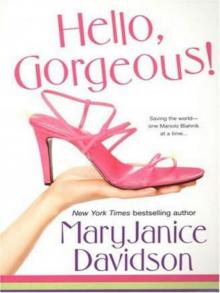 Hello, Gorgeous!
Hello, Gorgeous!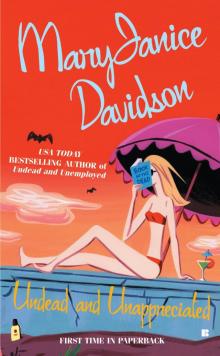 Undead and Unwed
Undead and Unwed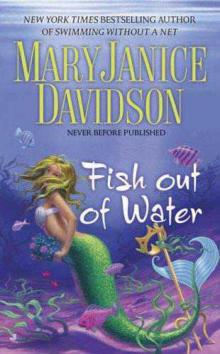 Fish Out of Water
Fish Out of Water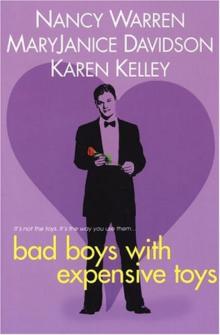 The World Is Too Darned Big
The World Is Too Darned Big Loves Prisoner
Loves Prisoner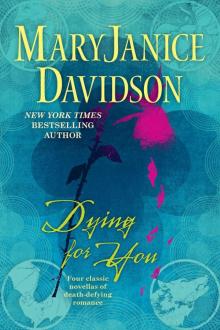 Dying for You
Dying for You Love Lies
Love Lies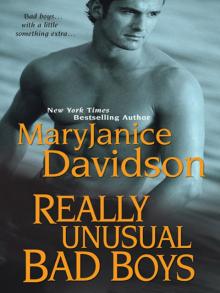 Really Unusual Bad Boys
Really Unusual Bad Boys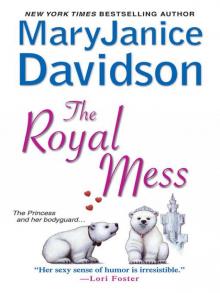 The Royal Mess
The Royal Mess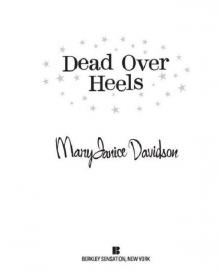 Dead Over Heels
Dead Over Heels Rise of the Poison Moon
Rise of the Poison Moon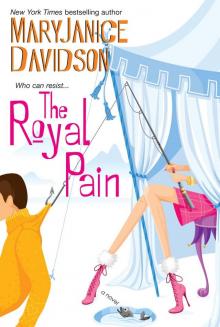 The Royal Pain
The Royal Pain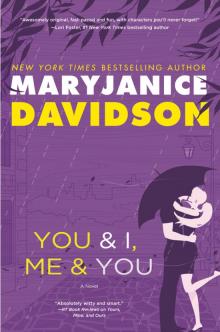 You and I, Me and You
You and I, Me and You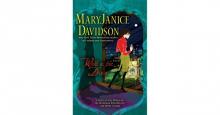 Jareds Wolf
Jareds Wolf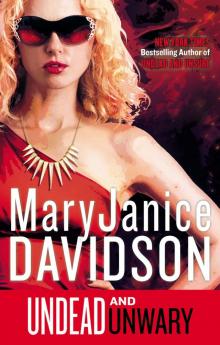 Undead and Unwary
Undead and Unwary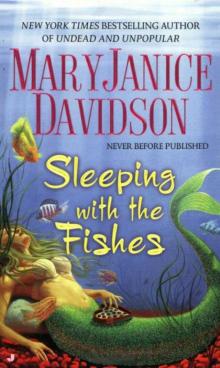 Sleeping With the Fishes
Sleeping With the Fishes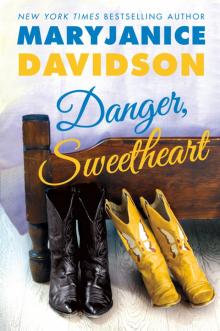 Danger, Sweetheart
Danger, Sweetheart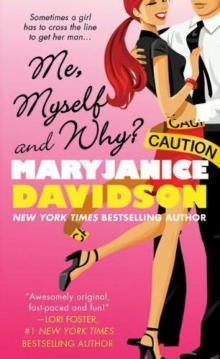 Me, Myself and Why?
Me, Myself and Why?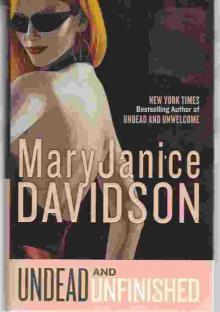 Undead and Unfinished
Undead and Unfinished Deriks Bane
Deriks Bane Thief of Hearts
Thief of Hearts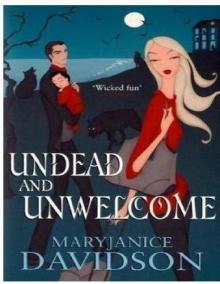 Undead and Unwelcome
Undead and Unwelcome Deja Who
Deja Who Deja New
Deja New Under Cover
Under Cover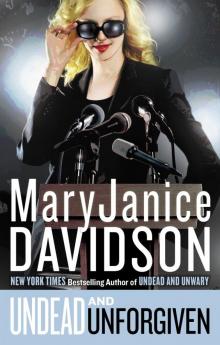 Undead and Unforgiven
Undead and Unforgiven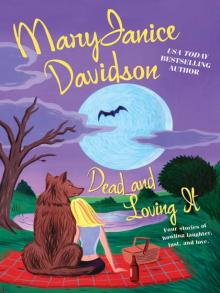 Dead and Loving It
Dead and Loving It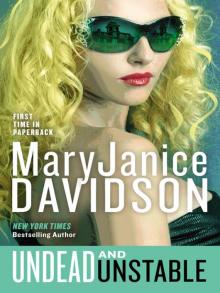 Undead and Unstable
Undead and Unstable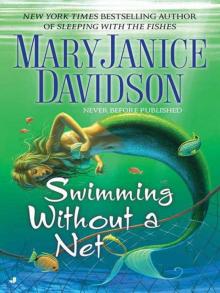 Swimming Without a Net
Swimming Without a Net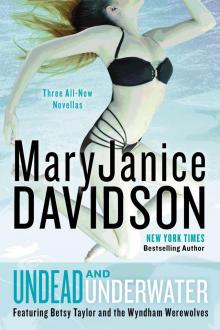 Undead and Underwater
Undead and Underwater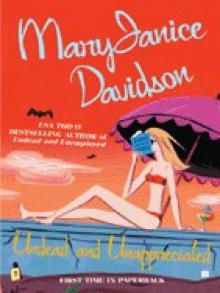 Undead and Unappreciated
Undead and Unappreciated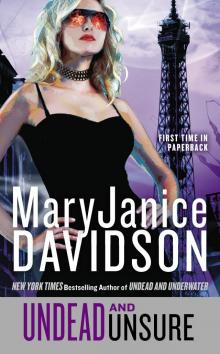 Undead and Unsure
Undead and Unsure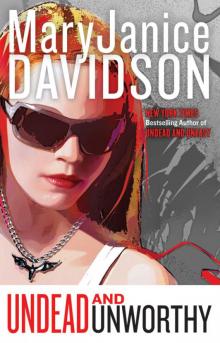 Undead and Unworthy
Undead and Unworthy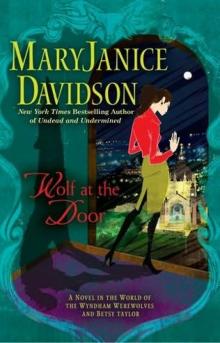 Wolf at the Door
Wolf at the Door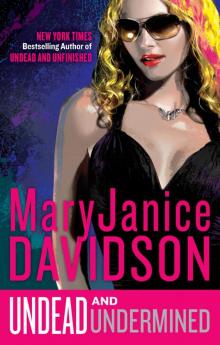 Undead and Undermined
Undead and Undermined Undead and Unpopular
Undead and Unpopular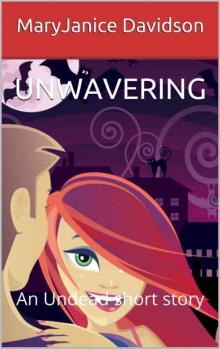 Unwavering
Unwavering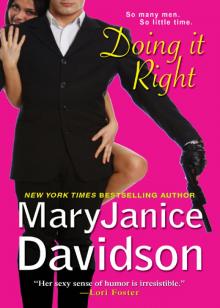 Doing It Right
Doing It Right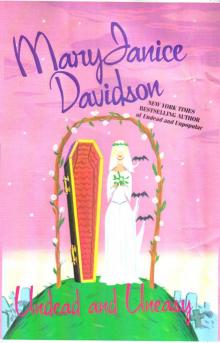 Undead and Uneasy
Undead and Uneasy Drop Dead, Gorgeous!
Drop Dead, Gorgeous!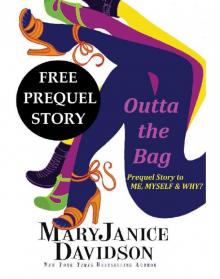 Outta the Bag
Outta the Bag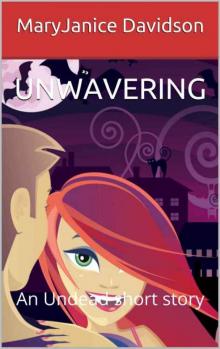 UNWAVERING: An Undead short story (Undead shorts Book 1)
UNWAVERING: An Undead short story (Undead shorts Book 1) Jennifer Scales and the Ancient Furnace
Jennifer Scales and the Ancient Furnace Yours, Mine, and Ours
Yours, Mine, and Ours Under Cover (v1.1)
Under Cover (v1.1)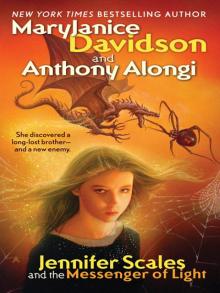 Jennifer Scales and the Messenger of Light
Jennifer Scales and the Messenger of Light Betsy 4 - Undead and Unreturnable
Betsy 4 - Undead and Unreturnable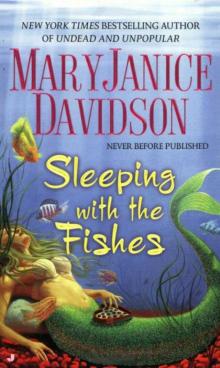 Sleeping with the Fishes (v1.1)
Sleeping with the Fishes (v1.1) betsy short 02 - ureliable
betsy short 02 - ureliable Evangelina
Evangelina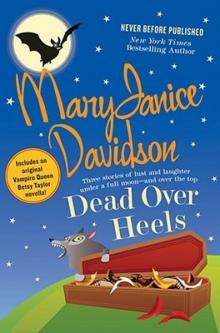 Dead Over Heels (wyndham werewolf)
Dead Over Heels (wyndham werewolf) The Silver Moon Elm
The Silver Moon Elm Faeries Gone Wild
Faeries Gone Wild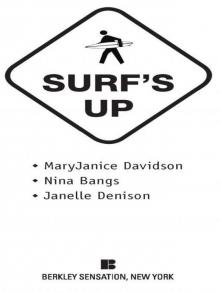 Surf's Up
Surf's Up Seraph of Sorrow
Seraph of Sorrow Demon's Delight
Demon's Delight